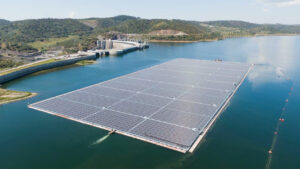THE Department of Energy (DoE) said it is studying Portugal’s transition away from coal-fired power plants as part of a broader potential collaboration that could result in Portuguese investment in Philippine renewable energy (RE) projects.
Energy Secretary Raphael P.M. Lotilla said the other areas of possible cooperation are offshore wind, floating solar, hydrogen and ammonia production using renewable energy.
“Portugal, as an early starter in RE, has similar challenges with the Philippines and is interested in the DoE’s approach in developing and utilizing the country’s RE sources,” the DoE said.
Portuguese Foreign Minister João Gomes Cravinho also conveyed the interest of Energias de Portugal (EDP) and EDP Renewables to invest in Philippine RE projects, the DoE said.
Mr. Lotilla said the Philippines and Portugal will also exchange notes on the import of liquefied natural gas and enhancing transmission systems in aid of preparing for a green energy transition.
Mr. Lotilla said he is interested in how Portugal repurposed its coal-fired power plants and how it incentivized the transition to the use of alternative fuels for co-firing with coal, such as hydrogen and ammonia.
Portugal decommissioned its last coal-fired plants in 2021, keeping it ahead of schedule in its fossil-fuel reduction targets.
The DoE said Portugal’s example signifies that an exit from coal is possible through carbon pricing, renewable energy investment and comprehensive transition planning.
To date, RE accounts for 22% of the Philippine energy mix. The government is aiming to increase the RE share to 35% by 2030 and 50% by 2040. — Ashley Erika O. Jose

